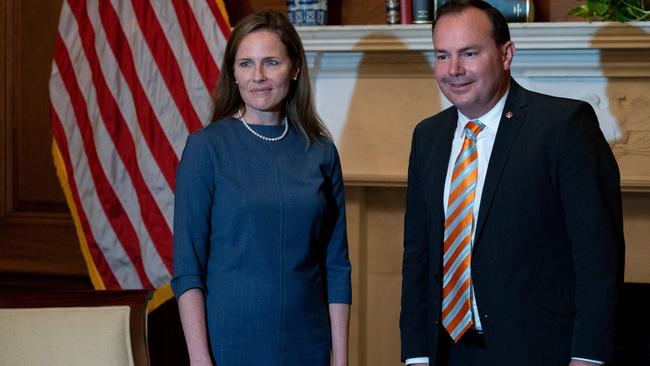Be prepared for a flood of falsehoods about originalism

The dominant form of originalism entails interpreting provisions of the US Constitution according to the “original public meaning” they bore when they were adopted. (Textualism is the same principle applied in statutory interpretation.) You wouldn’t know that from what journalists write about it.
Linda Greenhouse, who covered the Supreme Court for decades and should know better, claimed that judge Antonin Scalia (my father) believed “the only legitimate basis for interpreting the Constitution is the original intent of its framers”. Law professor Barbara McQuade recently wrote that originalists seek to understand what is “believed to be the original intent of the framers”. There are countless other examples of this conflation of intent with public meaning.
What’s the difference? For one thing, when seeking to understand the intent behind a law, a judge or lawyer may place greater weight on legislative history than on text. That method undermines the ideal that America is a nation of laws rather than men. As my father put it: “We are governed by laws, not by the intentions of legislators.”
What’s more, scouring committee records and debates to determine intent “is more likely to confuse than clarify”; another judge compared this approach to entering a party and looking over the heads of the crowd to find your friends. That is one reason why originalists and textualists believe “we are bound by what (laws) say, not by the unexpressed intention of those who made them”.
Another common misrepresentation of originalism and textualism is conveyed in the Daniel Handler novel collection, A Series of Unfortunate Events. During a trial scene in The Penultimate Peril, judges wear blindfolds out of a literal interpretation of the phrase “justice is blind”. This leads a wise infant who speaks in cryptic phrases to say simply, “Scalia” — meaning, the narrator explains, “something like, ‘It doesn’t seem like the literal interpretation makes any sense’ ”. Contrary to the jab, my father believed that “the good textualist is not a literalist”. That is why, for example, originalists recognise that the freedom of speech protects more than vocal utterances.
You can see hyperliteralism in the question posed by journalism professor JA Adande: “How can high-capacity gun magazines be covered by the second amendment when they didn’t exist when the second amendment was written?” Good judges must determine how rights apply to new technologies and circumstances that didn’t exist at the time of ratification.
Not only liberal critics of originalism fall into the trap of hyperliteralism: Strict constructionism, a term that some conservatives unwittingly embrace, refers to a method my father called “a degraded form of textualism that brings the whole philosophy into disrepute”.
My favourite misunderstanding of originalism is that its proponents believe, as Joseph Williams of US, News & World Report put it, that the constitution is “infallible”. Perhaps this was a subtle reminder that many originalists are Catholics, but not even Catholic originalists believe the constitution is an unerring document that should never be changed. Originalists ask: Who has the authority to change the constitution’s meaning? Who has the power to expand or limit rights based on the changing standards and mores? Not judges but the people, through their elected representatives. Not only does the constitution allow for amendment; it also establishes a system of representative government, separation of powers, and federalism that enables the law to adapt democratically to a changing society.
Finally, Democrat senators will claim that originalism is just a jurisprudential excuse to enshrine conservative policy ends in the law. Nonsense. In cases involving criminal procedure or the rights of the accused, for example, originalist opinions often support progressive policy goals. And on hot-button issues like abortion, marriage and the death penalty, it isn’t the originalists who take sides by shutting down democratic deliberation.
Be on the lookout for these common and predictable misrepresentations of originalism, which are sure to arise in the coverage of this week’s hearings.
Christopher Scalia is a co-editor of two collections of his father’s writings, Scalia Speaks: Reflections on Law, Faith, and Life Well Lived and On Faith: Lessons from an American Believer
The Wall Street Journal



When Amy Coney Barrett’s confirmation hearings begin, you can expect to hear a lot of questions about, and descriptions of her judicial philosophy, originalism. Much of what you’ll hear about it will be inaccurate.